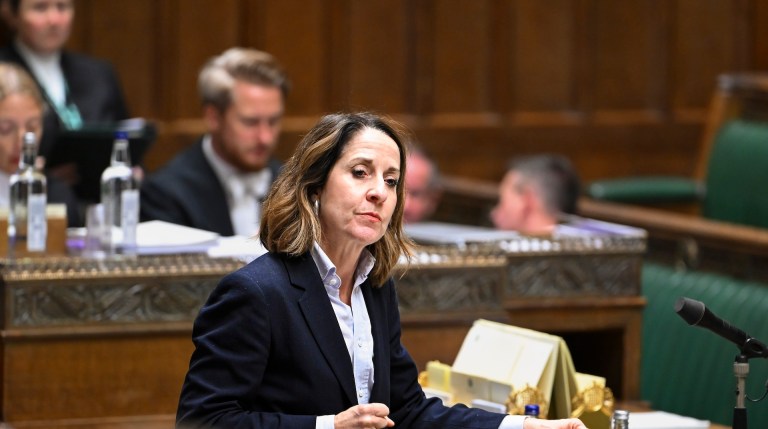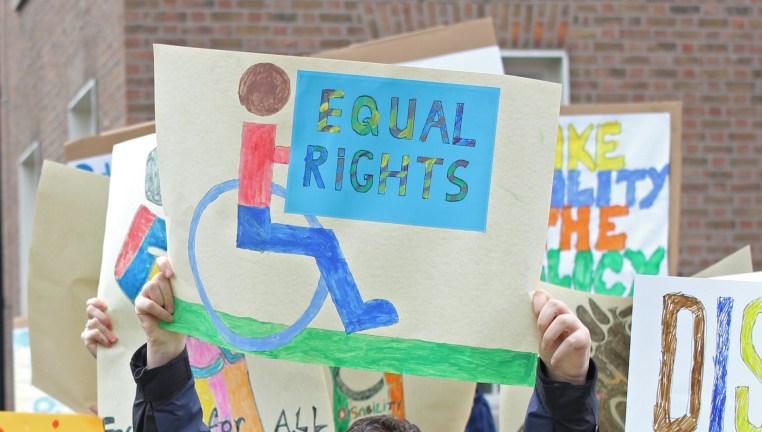With the exception of the barriers to paid work within the benefits system, there is scant mention of structural causes of poverty and unemployment in the universal credit government documents. Placing the blame on claimants for the poverty they experience is inherently stigmatising.
The implementation of universal credit was subsequently justified using stigmatising rhetoric. Using increasingly well worn tropes about ‘worklessness’ and ‘welfare dependency’, the coalition government portrayed those in receipt of benefits as lacking personal responsibility and a work ethic.
For example, the policy paper introducing universal credit states: “We made the commitment to overhaul the benefit system to promote work and personal responsibility.”
It said universal credit will “reintroduce the culture of work in households where it may have been absent for generations”.
These depictions continue despite research demonstrating that households with two generations in a family where no one has worked are very rare.
Given that universal credit is based upon and justified by stigma, it comes as no surprise that people in receipt of this benefit feel stigmatised by it. My research conducted between 2018 and 2024 with mums who claim universal credit demonstrates that this benefit routinely exacerbates the stigma that single mothers in particular already face.
“It’s awful because there’s still a massive stigma attached to being a single parent, even though it is more prevalent now, and there’s an even bigger stigma attached to being a single parent who doesn’t work for whatever reason,” Zoe told me.
This stigmatisation had very real impacts on the mothers’ lives: it devalued the hard and essential work they were carrying out in caring for their children, work that was really important to their identities. It could also be counterproductive to the policy’s aims of trying to increase moves and progression into paid work. Subjecting universal credit claimants to stigma and paternalistic compulsion contributes to a weakening of self-esteem and undermines claimants’ ability to find paid work.
Since obtaining devolved powers for social security, the Scottish government has taken the opposite approach: it attempts to reduce – rather than create – stigma. One of the government’s main objectives of the Scottish social security system is “treating people with dignity and respect, reducing stigma and maximising benefit take up“.
In direct contrast to the government in Westminster’s strategy of depicting benefit claimants as deviant from the main population, a key principle of Social Security Scotland is the recognition that “any of us, at any time in our lives, may need this support“.
The Scottish government’s implementation of the Scottish child payment – a flat rate payment of £26.70 paid every week for each child under 16 belonging to households in receipt of UK benefits – indicates this is not empty rhetoric.
The Scottish government drew on the expertise of people with experience of claiming benefits to inform the design of the Scottish child payment. The application process was deliberately designed to reduce stigma around applying for the Scottish child payment to improve take up through using straightforward language, widely promoting it and actively encouraging people to apply for it. Early evidence suggests that this has been effective, which is reflected in high take-up rates.
We are yet to understand whether the different approach taken by the Scottish government helps to reduce the stigma that both parents and children in receipt of benefits routinely experience. A timely new project funded by the Financial Fairness Trust will use mixed methods to comprehensively evaluate the Scottish child payment.
We will find out whether the Scottish child payment alleviates financial hardship and has impacts on less tangible aspects of poverty including stigma and shame. This understanding will be crucial in exploring whether and how far the approach taken to by Scotland is able to counter the harmful and counterproductive effects of the UK government’s deliberate attempts to stigmatise people living in poverty.
Kate Anderson is a research fellow at the University of York, working on the Benefit Changes and Larger Families project.
Do you have a story to tell or opinions to share about this? Get in touch and tell us more. Big Issue exists to give homeless and marginalised people the opportunity to earn an income. To support our work buy a copy of the magazine or get the app from the App Store or Google Play.









